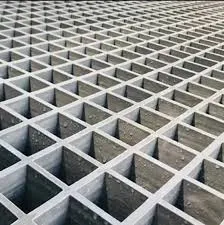
-
 Afrikaans
Afrikaans -
 Albanian
Albanian -
 Amharic
Amharic -
 Arabic
Arabic -
 Armenian
Armenian -
 Azerbaijani
Azerbaijani -
 Basque
Basque -
 Belarusian
Belarusian -
 Bengali
Bengali -
 Bosnian
Bosnian -
 Bulgarian
Bulgarian -
 Catalan
Catalan -
 Cebuano
Cebuano -
 China
China -
 China (Taiwan)
China (Taiwan) -
 Corsican
Corsican -
 Croatian
Croatian -
 Czech
Czech -
 Danish
Danish -
 Dutch
Dutch -
 English
English -
 Esperanto
Esperanto -
 Estonian
Estonian -
 Finnish
Finnish -
 French
French -
 Frisian
Frisian -
 Galician
Galician -
 Georgian
Georgian -
 German
German -
 Greek
Greek -
 Gujarati
Gujarati -
 Haitian Creole
Haitian Creole -
 hausa
hausa -
 hawaiian
hawaiian -
 Hebrew
Hebrew -
 Hindi
Hindi -
 Miao
Miao -
 Hungarian
Hungarian -
 Icelandic
Icelandic -
 igbo
igbo -
 Indonesian
Indonesian -
 irish
irish -
 Italian
Italian -
 Japanese
Japanese -
 Javanese
Javanese -
 Kannada
Kannada -
 kazakh
kazakh -
 Khmer
Khmer -
 Rwandese
Rwandese -
 Korean
Korean -
 Kurdish
Kurdish -
 Kyrgyz
Kyrgyz -
 Lao
Lao -
 Latin
Latin -
 Latvian
Latvian -
 Lithuanian
Lithuanian -
 Luxembourgish
Luxembourgish -
 Macedonian
Macedonian -
 Malgashi
Malgashi -
 Malay
Malay -
 Malayalam
Malayalam -
 Maltese
Maltese -
 Maori
Maori -
 Marathi
Marathi -
 Mongolian
Mongolian -
 Myanmar
Myanmar -
 Nepali
Nepali -
 Norwegian
Norwegian -
 Norwegian
Norwegian -
 Occitan
Occitan -
 Pashto
Pashto -
 Persian
Persian -
 Polish
Polish -
 Portuguese
Portuguese -
 Punjabi
Punjabi -
 Romanian
Romanian -
 Russian
Russian -
 Samoan
Samoan -
 Scottish Gaelic
Scottish Gaelic -
 Serbian
Serbian -
 Sesotho
Sesotho -
 Shona
Shona -
 Sindhi
Sindhi -
 Sinhala
Sinhala -
 Slovak
Slovak -
 Slovenian
Slovenian -
 Somali
Somali -
 Spanish
Spanish -
 Sundanese
Sundanese -
 Swahili
Swahili -
 Swedish
Swedish -
 Tagalog
Tagalog -
 Tajik
Tajik -
 Tamil
Tamil -
 Tatar
Tatar -
 Telugu
Telugu -
 Thai
Thai -
 Turkish
Turkish -
 Turkmen
Turkmen -
 Ukrainian
Ukrainian -
 Urdu
Urdu -
 Uighur
Uighur -
 Uzbek
Uzbek -
 Vietnamese
Vietnamese -
 Welsh
Welsh -
 Bantu
Bantu -
 Yiddish
Yiddish -
 Yoruba
Yoruba -
 Zulu
Zulu
frp pipes and fittings for ship building
FRP Pipes and Fittings for Shipbuilding
In the ever-evolving world of shipbuilding, the choice of materials plays a crucial role in determining the performance, longevity, and safety of maritime vessels. Among the various materials available, Fiber Reinforced Plastic (FRP) has emerged as a preferred option for pipes and fittings. This article explores the significance, benefits, and applications of FRP in shipbuilding, highlighting why it is becoming increasingly indispensable in modern marine construction.
The Nature of FRP
Fiber Reinforced Plastic is a composite material made of a polymer matrix reinforced with fibers. Typically, glass, carbon, or aramid fibers are used to enhance the strength and durability of plastics. This combination results in a material that possesses exceptional mechanical properties, chemical resistance, and low weight, making it particularly suitable for marine applications. The versatility of FRP allows it to be molded into various shapes, making it ideal for complex piping systems and fittings required in shipbuilding.
Advantages of FRP Pipes and Fittings
1. Corrosion Resistance One of the standout features of FRP is its outstanding resistance to corrosion. Marine environments expose materials to saltwater, moisture, and various chemicals that can rapidly decompose traditional materials like steel. FRP's inherent properties enable it to withstand these harsh conditions without succumbing to rust or degradation, ensuring a longer lifespan for ship components.
2. Lightweight Composition Compared to traditional materials such as steel and iron, FRP pipes and fittings are significantly lighter. This weight reduction is crucial in shipbuilding, as it enhances fuel efficiency and overall vessel performance. Lighter ships can achieve better speed and maneuverability, translating to lower operational costs over time.
3. Ease of Installation The lightweight nature of FRP materials not only simplifies handling but also reduces labor costs during installation. Additionally, FRP can be molded into any shape, allowing for custom fittings that align perfectly with the ship's design, minimizing the need for extensive modifications during installation.
frp pipes and fittings for ship building

4. Thermal Insulation FRP provides excellent thermal insulation properties. This quality helps in regulating temperature within the ship, contributing to energy efficiency and comfort for passengers and crew alike. The insulation properties also protect sensitive equipment from temperature fluctuations that may degrade performance.
5. Environmental Impact With the rising focus on sustainability, using FRP contributes positively to environmental conservation efforts. Its longevity reduces the frequency of replacements and repairs, thus minimizing waste. Furthermore, FRP can be manufactured with lesser energy compared to metals, making it a more eco-friendly option.
Applications in Shipbuilding
FRP pipes and fittings are utilized in various applications within the maritime sector. They are commonly found in wastewater treatment systems, cooling water systems, fuel lines, and ballast and bilge systems. Furthermore, FRP components are essential in composite structures like decks, hulls, and superstructures where weight savings are paramount.
The shipbuilding industry also utilizes FRP for designing specialized tanks for cargo, fuel, and water storage. These tanks benefit from the composite's corrosion resistance and lightweight properties, allowing for safer and more efficient storage solutions.
Conclusion
As the shipbuilding industry continues to advance, the demand for innovative materials that enhance performance and durability is on the rise. FRP pipes and fittings have demonstrated their superiority over traditional materials in various aspects essential to maritime construction. Their corrosion resistance, lightweight nature, ease of installation, and environmental benefits position FRP as a critical player in modern shipbuilding. As more manufacturers recognize these advantages, it is likely that FRP will continue to see expanded use in the industry, ultimately contributing to safer, more sustainable, and more efficient maritime vessels. The transition towards FRP represents not only a material choice but also a commitment to embracing the future of shipbuilding technologies.









